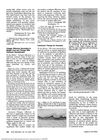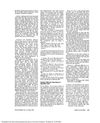Search
forLearn
5 / 5 resultslearn Vascular Endothelial Growth Factor
learn Exosomes
Microscopic delivery system that sends growth-promoting signals to hair follicles
learn Redensyl
commercial product with a blend of mostly natural ingredients for hair regrowth
learn Castor oil
a traditional, natural remedy touted for promoting scalp health and hair growth
Research
5 / 1000+ results
research Telogen Effluvium Secondary to Weight Loss and Therapy With Chorionic Gonadotropin
A woman's significant hair loss was linked to rapid weight loss and hormone injections.

research Telogen Effluvium Secondary to Starvation Diet - Reply
Extreme weight loss from crash dieting can cause significant hair loss.

research Telogen Effluvium Secondary to Starvation Diet
Starving yourself can cause hair loss, but stopping the diet can improve it.

research Controversies in Plastic Surgery: Suction-Assisted Lipectomy and the hCG Protocol for Obesity Treatment
The document concludes that the hCG protocol may help in obesity treatment and could be scientifically justified, but more research is needed.

research Five-Year Results of a Prospective Very Low-Calorie Diet or Conventional Weight Loss Program in Type 2 Diabetes
The intensive conventional diet with exercise led to better long-term weight loss and health improvements than the very low calorie diet in obese type 2 diabetics.
Community Join
5 / 394 results
community Hair Loss After 15kg Weight Loss, Fin+Microneedling for 2.5 Months, Seeking Advice
Rapid weight loss may have triggered increased hair shedding. Continuing with finasteride, microneedling, a healthy diet, and supplements like MSM and vitamin B is advised, but results may take 6-12 months.
community Accelerated Hair Loss from Creatine
Creatine may cause hair loss in some individuals, especially those on finasteride, despite no scientific link. Personal experiences suggest individual sensitivity to DHT could be a factor.
community HairCafe: The Broscience of Hair Loss, DHT, and Bludflow with Andrew Huberman
Hair loss, DHT and bloodflow with Andrew Huberman; the discussion includes opinions about supplements, finasteride, minoxidil, turmeric, coffee and botox injections for hair loss.
community How much does diet affect hair loss?
The conversation suggests that changing diet and lifestyle has little to no effect on male pattern baldness (MPB), which is largely determined by genetics. Some individuals noted personal improvements in hair condition with healthier diets, but the consensus is that diet alone cannot prevent or reverse MPB.
community My 14 Month Progress
A 25-year-old male shared his 14-month hair regrowth progress using minoxidil, finasteride, and initially dermarolling, along with supplements like fish oil, vitamin D, biotin, and zinc. He attributes his hair loss improvement mainly to the medications and noted minor side effects like lower libido and dark circles under the eyes.